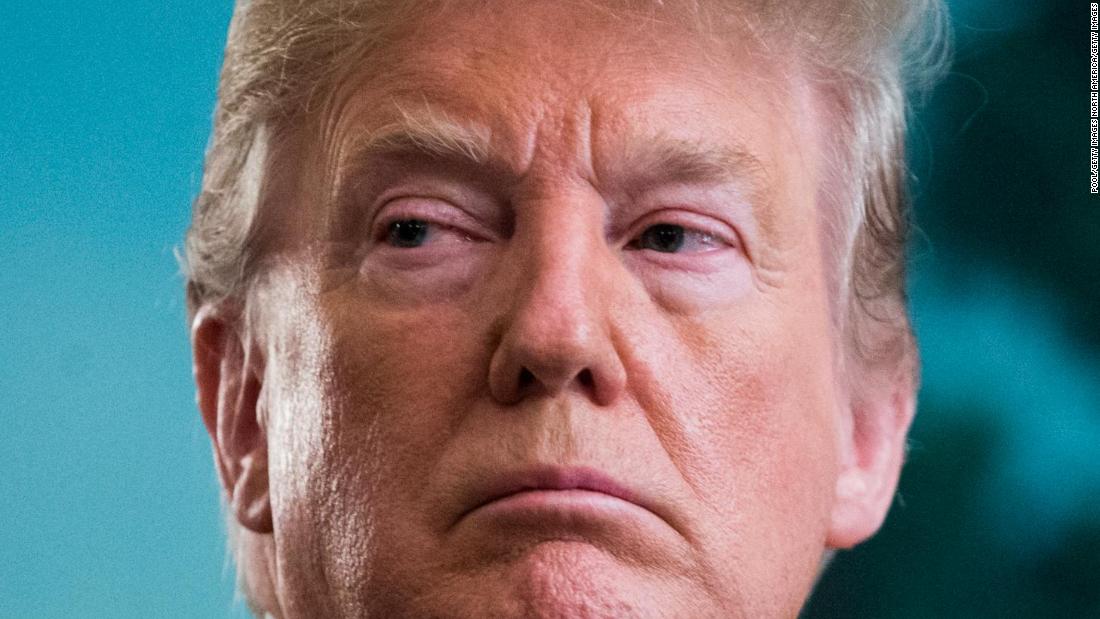Many of these challenges are self-inflicted. The Trump administration has ratcheted up tensions around the world by imposing tariffs on Chinese goods, withdrawing from the Iran nuclear deal and withdrawing from arms-control agreements — to name just a few. Throw in President Donald Trump’s inflammatory rhetoric, and the President is seeing the fruits of his labor. Unfortunately, the costs of his war-mongering may have fatal consequences, and his team may be ill-equipped to prioritize and develop coherent strategies.
And part of the problem is that Trump has wielded a big stick with allies and enemies alike. For example, Trump’s go big or go home approach with Beijing — in which he’s
tried to press for Chinese concessions, including better protections for American intellectual property and limitations on Chinese currency manipulation — has launched us into a prolonged battle.
While the trade war with China continues with no clear end in sight, it’s important to remember that
Trump almost started another trade war with US allies when he threatened to withdraw the US from NAFTA. Though that crisis was ultimately averted, the revised trade agreement, known as the
US-Mexico-Canada Agreement, has yet to be ratified by Congress. In the meantime, perhaps recognizing that he needs to pick his fights, the
President has lifted steel and aluminum tariffs on Canada and Mexico, which could help pave the way for approval of the USMCA deal.
While all isn’t quiet on the home front, ending one (unnecessary) battle was a prudent move. With finite resources, we should turn our fire to where it’s needed rather than to where Trump’s latest Twitter tirade takes us.
Conventional war
While Trump may be evolving from a recalcitrant trade warrior into a regretful one — potentially because of anticipated political repercussions if he doesn’t end costly trade wars — he’s been warmongering in more conventional theaters for years.
Despite various players now saying that they
don’t want war, heightened tensions with Iran — which have led to the
repositioning of US military assets in the Middle East and
an order to partially withdraw US diplomats from Iraq — are no surprise: Trump’s policy as a candidate and as President has been to saber rattle. Anyone pointing the finger at national security adviser John Bolton, who has
argued for regime change in Iran, is giving Trump an unwarranted free pass.
While Trump has publicly said, “I hope not,” when it comes to a possible war with Iran and
reportedly expressed the same sentiments with his team, he should take responsibility for ratcheting up tensions. By withdrawing from the nuclear deal and imposing sanctions, he reintroduced pressure on Iran and left open the possibility that Iran would, like the US, renege on its commitments in the nuclear deal.
Trump has
also engaged in a war of words (and
memes) with the Iranian regime, tweeting about
historic “consequences” — after Iranian President Rouhani threatened us with the “mother of all wars.”
In short, the President has brought us closer to war with Iran, and now he doesn’t want to own it.
Nuclear war
While we aren’t fighting a nuclear war, Trump has also brought America closer to doing so down the road. His decision to withdraw from the Iran deal has led the Iranian regime
to say that it will resume banned activities that could bring it closer to a nuclear weapon. Meanwhile, the President’s decision to engage in diplomacy with North Korea for over a year while Kim Jong Un continues weapons development means the rogue state
may have more nuclear weapons today than it did when Trump took office.
Withdrawing
from arms agreements with Russia also increases the risks of accelerating the production and pre-positioning of previously banned weapons. We know that China is
also continuing to advance its nuclear weapons capabilities — and Iran’s
potential return to the pursuit of a nuclear weapon may spur Saudi Arabia to seek a matching capability.
The nuclear threat is rising.
Information war
While Americans try to make sense of what’s happening, the information war
waged by Trump is making it difficult to understand what’s going on. Aside from his Twitter flip-flops on North Korea and Iran, the President’s
tendency to spout lies and falsehoods means that his official policy statements are confusing to the American people.
Though Trump’s information warfare tactics are tried and true, we also know that Russia’s information warfare campaign against the United States hasn’t stopped. The President’s own penchant for information warfare likely does little to deter our enemies from following suit.
The biggest war the President is fighting is with the truth, and that complicates the ability of everyone — his team included — to identify and articulate US national security interests.
Because of the President’s warmongering in pursuit of personal and political interests, the threat outlook is increasingly complex. And that should give every American cause for concern.



